- Film And TV
- 11 Nov 22

Inspired by the 1948 Newbery-honoured children’s book from New York author Ruth Stiles Gannett, the breathtaking new Cartoon Saloon feature film My Father’s Dragon is now showing in Irish cinemas, and is available to stream on Netflix from today (November 11th).
Kilkenny studio Cartoon Saloon was set up in 1999 by Tomm Moore, Paul Young and Nora Twomey with love and modest ambitions, and boy has it soared ever since. Accolades aren’t the goal, but five Academy Award nominations later, its respected co-founders and animators are recognised worldwide for their gifts. Not to mention the impact the stories themselves have had on the young audiences’ imaginations.
Infusing Celtic folklore into its DNA with The Secret of Kells, Wolfwalkers and Song of the Sea before Twomey’s The Breadwinner instead chose Kabul, Afghanistan under Taliban rule as its setting, the studios fifth outing My Father’s Dragon is shifting the locational goalposts once more.
Adapted from the 1948 children’s book by Ruth Stiles Gannett, My Father’s Dragon has an unbelievable voice cast including Jacob Tremblay, Gaten Matarazzo, Golshifteh Farahani, Dianne Wiest, Rita Moreno, Chris O’Dowd, Judy Greer, Alan Cumming, Yara Shahidi, Jackie Earle Haley, Mary Kay Place, Leighton Meester, Spence Moore II, Adam Brody, Charlyne Yi, Maggie Lincoln, Jack Smith, Whoopi Goldberg and Ian McShane. Struggling to cope after a move to the city with his mother, Elmer (Tremblay) runs away in search of Wild Island and a young dragon (Matarazzo) who waits to be rescued. Elmer's adventures introduce him to ferocious beasts, a mysterious island and the friendship of a lifetime.
Speaking to the eloquent Nora Twomey from her accommodation in Charlottesville, West Virginia, the director and animator is in great spirits as she presents My Father’s Dragon at a film festival in the States. She’s joined by screenwriter Meg LeFauve (Inside Out) and producer Julie Lynn on the jaunt, where the heartwarming picture is scooping up praise.
Advertisement
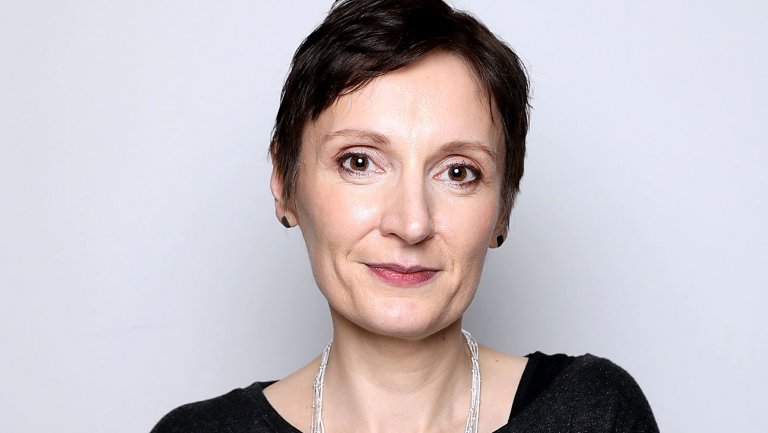 Nora Twomey by Vittorio Zunino Celotto/ Getty Images, Vittorio.
Nora Twomey by Vittorio Zunino Celotto/ Getty Images, Vittorio.“We got the Special Jury Award at Animationist Film Festival in Los Angeles in the historic Chinese Theatre there,” the director tells me, smiling. Even after the immense success of the Irish studio’s previous outings, the animator still seems surprised at the attention. “We premiered the film at London Film Festival, and I especially love seeing how it really captures the imagination of children. It’s amazing. You get to do these Q&A sessions afterwards, and usually the kids are all over the place but during the film itself, they’re just glued to the screen. I’m really pleased with how it’s being received, I couldn’t ask for more.”
Twomey’s focus on the need to respect the perspective (and wisdom!) of children emanates from every frame of My Father’s Dragon. While both the book and film are aimed at young audiences, it doesn’t shy away from the difficulties that face every age group.
“This is a film for everyone,” she nods, sincerely. “It doesn’t exclude children, but there are layers of the story in there that are about Elmer’s mum not having enough money and his heartbreak at having to leave home. At times, Elmer is a compromised character. Years ago I was given the advice that children won’t ever forgive you for talking down to them. You can confuse your audience for ten seconds, but never be patronising in any way. With this film, we have a very realistic mom. She’s not a feisty, completely flawless person who is able to do everything. Everyone has bad and good sides to them. There’s a lot of complications with all of our characters and you can understand it from their perspective. In terms of the design, we were influenced by the beautiful illustrations that the book is inspired by, but also by children’s art. I asked my two boys to draw. When they were younger, they did funny things like make the tiger’s head really big because that was the most frightening part of the animal, or drawing a tangle of crocodiles. There’s a very literal children’s influence there.”
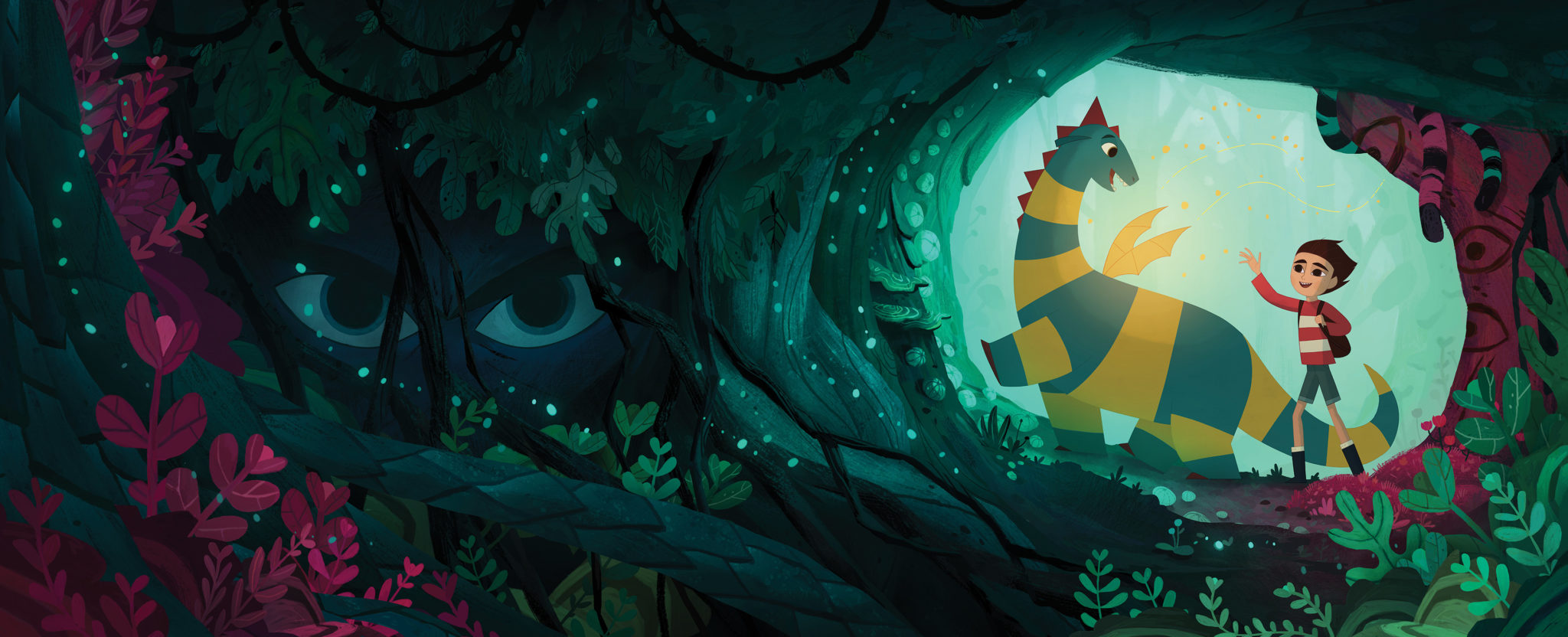 Cr: Netflix © 2022
Cr: Netflix © 2022“They move in and out of each other’s imaginations so effortlessly and without question,” Nora continues, smiling brightly. “For example, one of my children’s friends picked up this huge log as they were walking along in a forest one day, and everyone helped. They didn’t ask why they were carrying a log, or what they were going to do with it, they just did it. It freed my mind into thinking like a child. It changed the way that we told the story. This was also influenced very much by meeting Ruth Stiles Gannett, the author of the book, in Trumansberg, upstate New York, a number of years ago. She places huge importance on children, their imagination, her own imagination and yours. She takes nothing for granted.”
Advertisement
One fascinating aspect of Wild Island is the imminent threat of extinction. Every 100 years, the island sinks, and a dragon must rescue the inhabitants by lifting the place above water. Even though the original book was written in the 1940s, and was influenced by The Great Depression, the modern tale has no particular place in mind, yet feels eerily relevant to the climate anxiety of our current, capitalist world.
“These are very relevant themes,” Twomey affirms. “All of the animals describe different fear reactions to the place around them sinking. None of them are wrong, so to speak, but all of them have a fear of facing the truth and working beyond the chaos. That behaviour will ultimately be better for where they live and would create more security. Saiwa the gorilla, for example, is the leader of Wild Island [voiced perfectly by Ian McShane]. He essentially keeps the dragon Boris captive in order to hold the island above the water. He knows that what he’s doing is not the right answer, and eventually it’s going to drown the animals, but he’s locked into a certain pattern of behaviour that he can’t move beyond. To do that would be to show weakness, and he can’t do that or it would cause chaos in their environment.
“On the surface it’s a simple children’s story, but there are layers of how to cope with the world around us collapsing, and what we’re doing to the planet,” Nora adds. “By being truthful and displaying our vulnerability, that will help bring us into more action-led circumstances as opposed to just rhetoric. Children understand this at a very deep level. Especially coming out of the last few years they’ve been through and what they’re facing into the next decade or so, it’s about feeling a need to take some kind of control but not knowing how. I remember as a child worrying about how much money my parents had, and thinking about what would happen if we didn’t have enough. You can’t stop children feeling those things, you can only help them and the adults in their lives to cope as storytellers.”
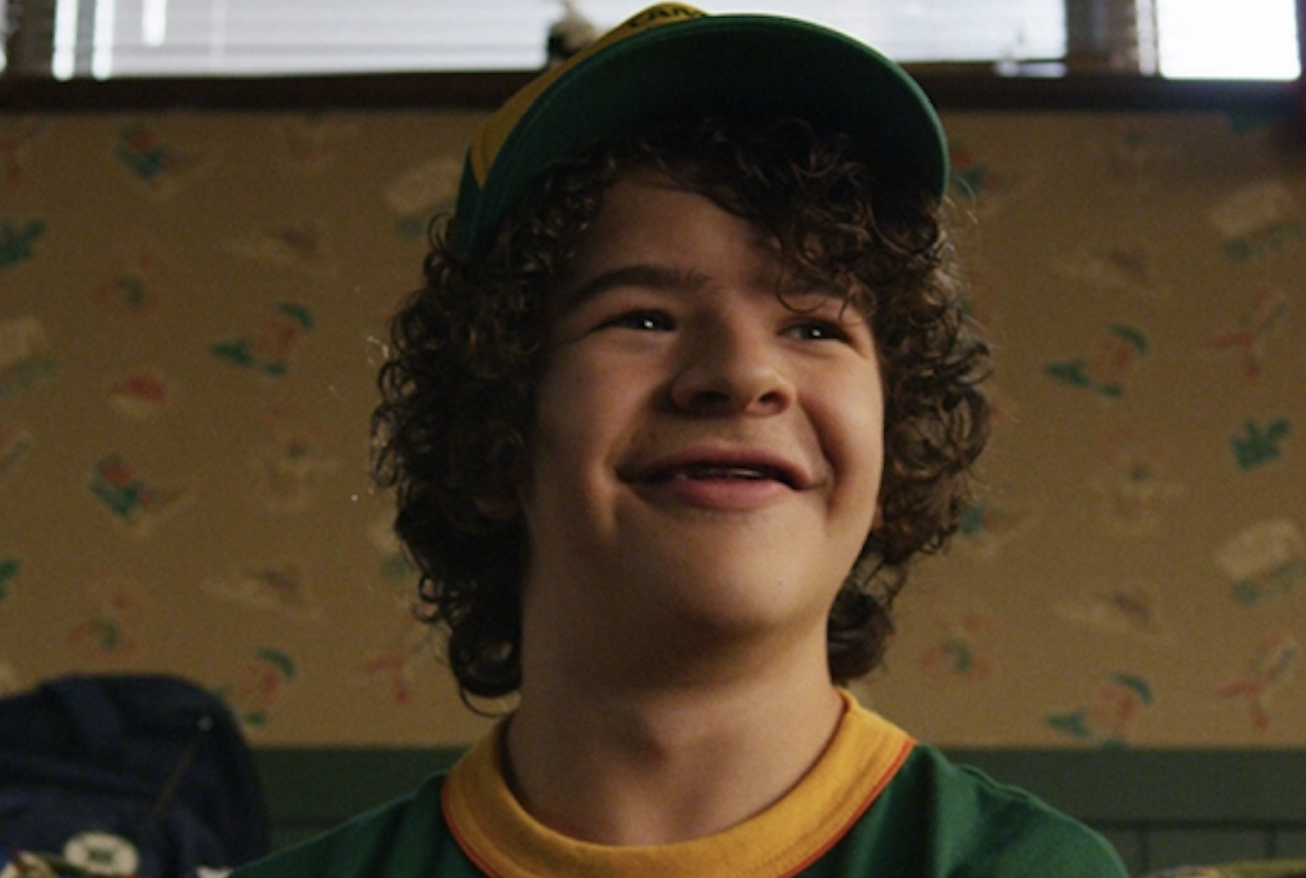 Gaten Matarazzo in 'Stranger Things'. Credit: Netflix.
Gaten Matarazzo in 'Stranger Things'. Credit: Netflix.Gaten Matarazzo and Jacob Tremblay’s (absolutely adorable) voices as Boris and Elmer have changed massively since they recorded for the roles a number of years ago.
“Jacob Tremblay had the biggest change in terms of his voice,” Nora recalls, smiling. “He was only 12 when he recorded for Elmer, and now he’s just turned 16, so he sounds like a different person! There was something very magic about Jacob and Gaten, who was 17. They were on either side of puberty but both of them had moments where their voices would jump up an octave, and they’d apologise for it or ask to do another take - but I thought it was the most beautifully vulnerable thing to put on a screen! I’d ask the sound recorders to make sure that we had those tapes because that imperfection is exactly what we look for in stories. That’s why the animation is so lovely, there’s an imperfection to it that helps us connect to the screen so much more than a superhero with a lot of muscles. That’s not the story we’re telling here. Even though it’s about a boy and a magic dragon, they’re just two kids trying to navigate the world around them. There’s a deep, fundamental, epic truth to that which makes My Father’s Dragon a special story to my heart.”
Advertisement
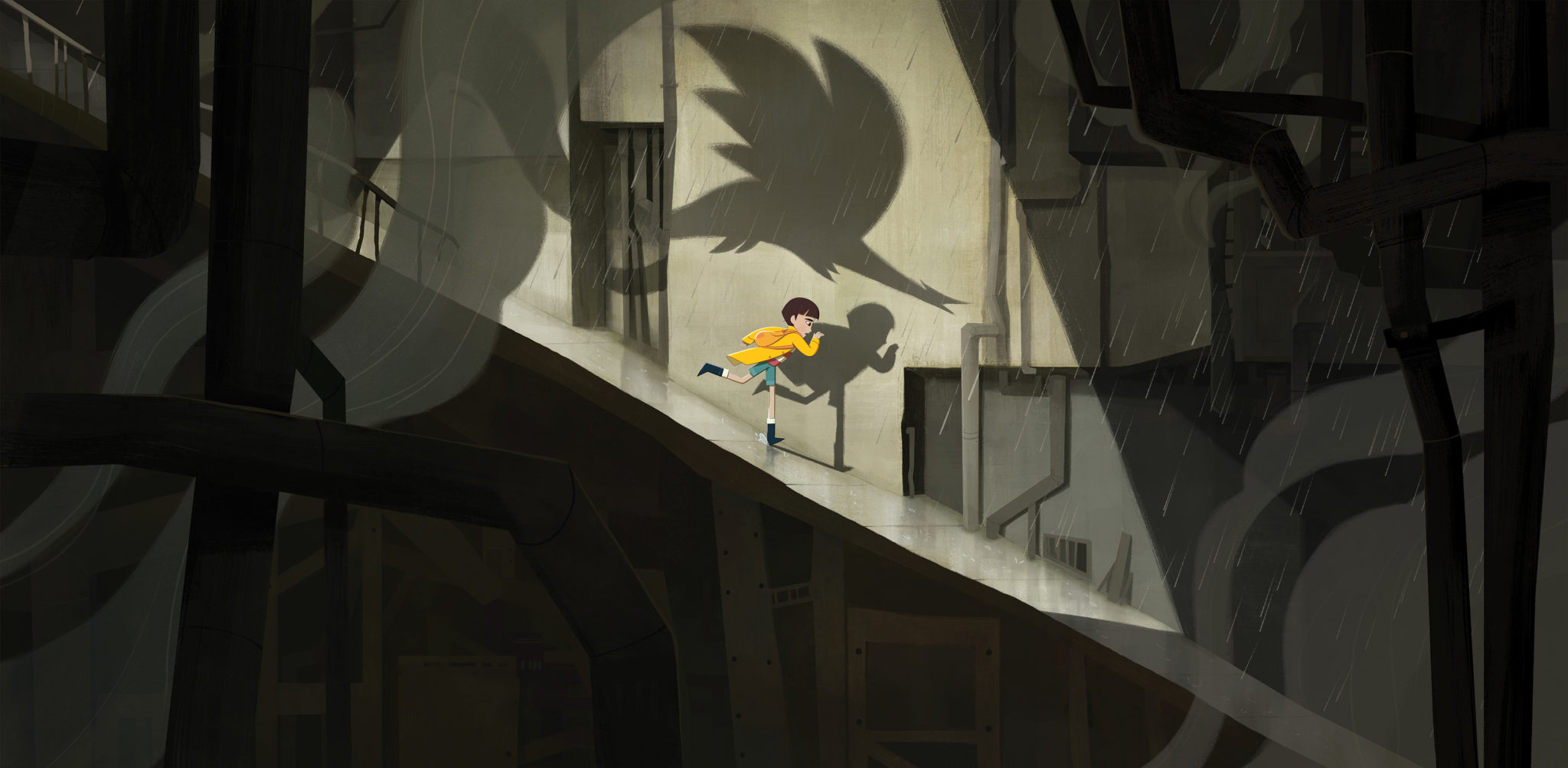 Cr: Netflix © 2022
Cr: Netflix © 2022Stranger Things star Gaten Matarazzo was also generous with his time during the recording.
“Gaten was incredible. He loves animation! We were all separated during the pandemic and everybody was working from their bedrooms or kitchen tables. Gaten came on one of the days to talk to our crew, because we have a lot of budding directors, voice directors, actors or different types of talent in the team. For someone like him to talk about his craft and spend a lot of time answering questions was really invigorating and rejuvenating for a group who had been split apart in unnatural ways as a studio. He’s an incredible supporter.”
“Lots of actors don’t like to hear or see themselves on the screen, or see the final work,” Nora notes. “It must be an interesting experience for Gaten and Jacob to hear younger versions of themselves captured, but I think they’re both very proud of the work that they did.”
Of course, Jacob and Gaten were just two names in a star-studded cast of veteran actors.
“I was most excited about landing Rita Moreno,” Twomey tells me. “She plays the part of Mrs McLaren, Elmer and his mom’s landlady in their new apartment. Growing up in the 70s and 80s, I knew her from Sesame Street before I understood that it was the same person from West Side Story. Having someone of her stature come into the room, I remember being really nervous beforehand. She’s just the most loving and warm person, and really giving. Extremely playful. Ruth took a character who is very harsh on the page, very set, and brought a comedy to Mrs McLaren that I couldn’t have imagined. Now I can’t see her any other way. She had such a giggle over things like how to pronounce words, that I’d almost forget that I had an icon in my recording studio! One of the most amazing parts of the entire process was just seeing how much Rita Moreno loves to play around with a character.”
Advertisement
Ian McShane and Roscommon star Chris O’Dowd also portray another on-screen duo, the intimidating gorilla Saiwa and his ever-concerned henchman, Kwan the macaque.
“They weren’t in the same room together when they recorded,” Twomey says of the partnership. “Alan Cummings used his own accent for Cornelius the Crocodile, as did Ian McShane. Because this is set in a fantastical world, even Nevergreen is not a real place and there’s no real time. It’s a sort of mixture of the Depression Era and post-war American metropolis. I love that Chris used his own voice and Irish accent because he’s not pretending to be a character, and yet there’s a side to Chris that I wasn’t aware of. There’s a panic in his voice for the part of Kwan that really comes across as truthful. I identified with him. Once we started recording for the part in the studio, there was this energy, a directness, coming from him that almost made me want to hide. Kwan is right in the film in that they’re wasting time trying to save the island, but he lacks some compassion. It’s a pretty complex character, but to see Chris O’Down bring a realness to that performance was wonderful.”
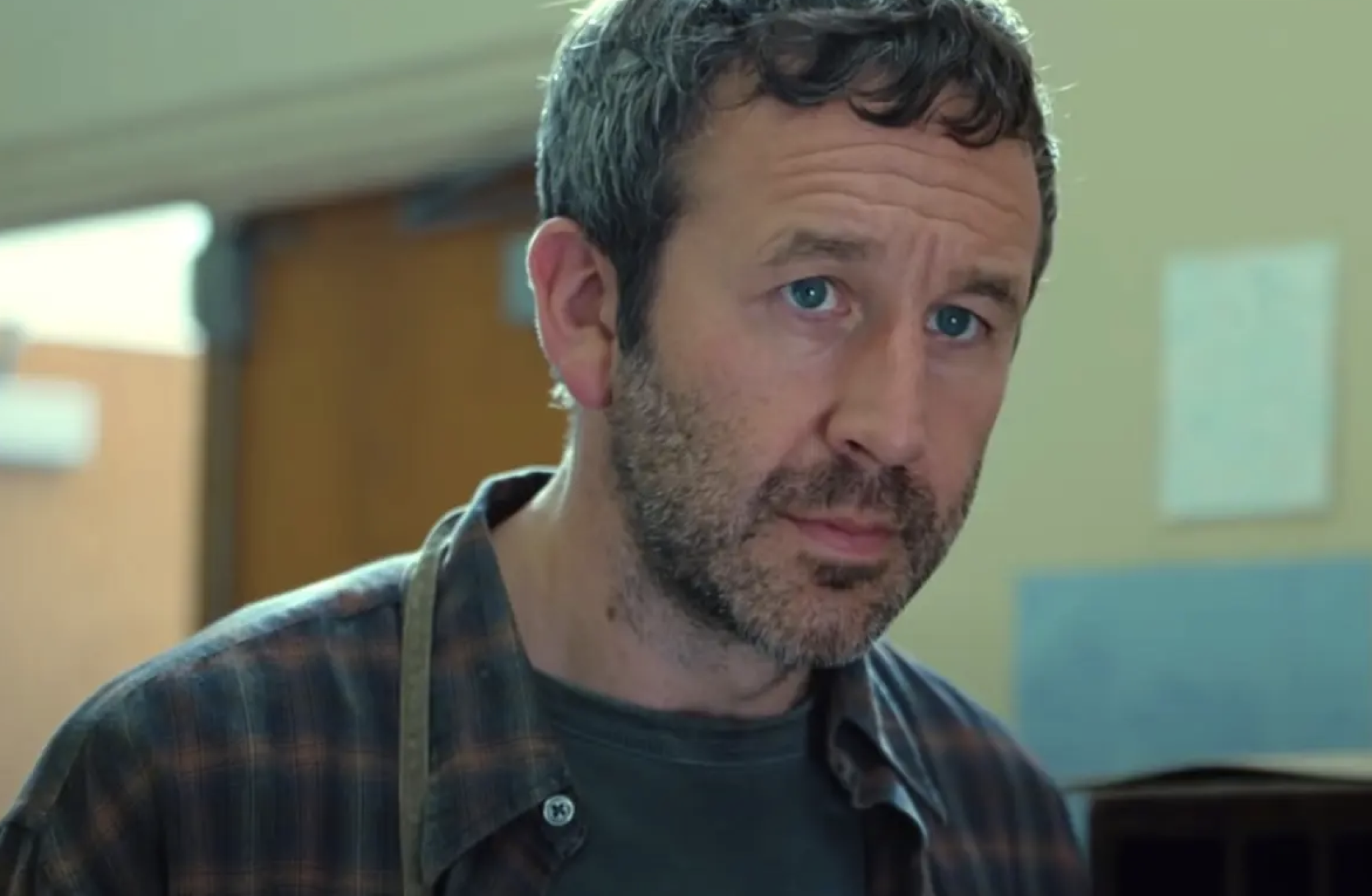 Credit: Karen Ballard/Netflix.
Credit: Karen Ballard/Netflix.Brothers Mychael and Jeff Danna scored My Father’s Dragon to a stunning degree, basing their poignant but joyful soundscapes on the extreme highs and lows of the human voice.
“Sound is fifty percent of a film, and from the earliest screenplay stages or storyboard stages, you’re leaving room for what’s not there yet. You know it’s going to be there, though: both the score and the sound design. The score lifts Elmer up, while the sound design of the roots pulls him down. They need to live in harmony with each other,” Twomey explains.
“I had worked with Mychael and Jeff Danna on The Breadwinner. That film was very different in terms of budget and circumstances. They were often working with musicians who were recording in Kabul and so they tried to grab whoever they could. I knew from working with them that they’re egoless composers. They lose themselves completely in what the film needs to be. Their first pass was always to fully investigate what’s going on in the film at a particular time; what Elmer needs, what’s being expressed, what are they holding back. They build a score from a very emotional place, all the time thinking about the film holistically.
Advertisement
“They’re not bombarding you with the score everywhere, they know that there’s strength in silence and the quiet moments as well as the big, epic moments,” Nora insists. “Working with Netflix meant that we could do things like work with the best orchestra in the world in Abbey Road, and use a magnificent choir who also leaned into the idea of a voice soaring above the entirety of the soundscape. You have the extremes of what the human voice is capable of expressing in the film, but it was absolutely magical. Our head of story, Giovanna Ferrari, managed to travel over to Abbey Road when the orchestra was being recorded and she said she just burst into tears the instant they started up. It was such an emotional moment.”
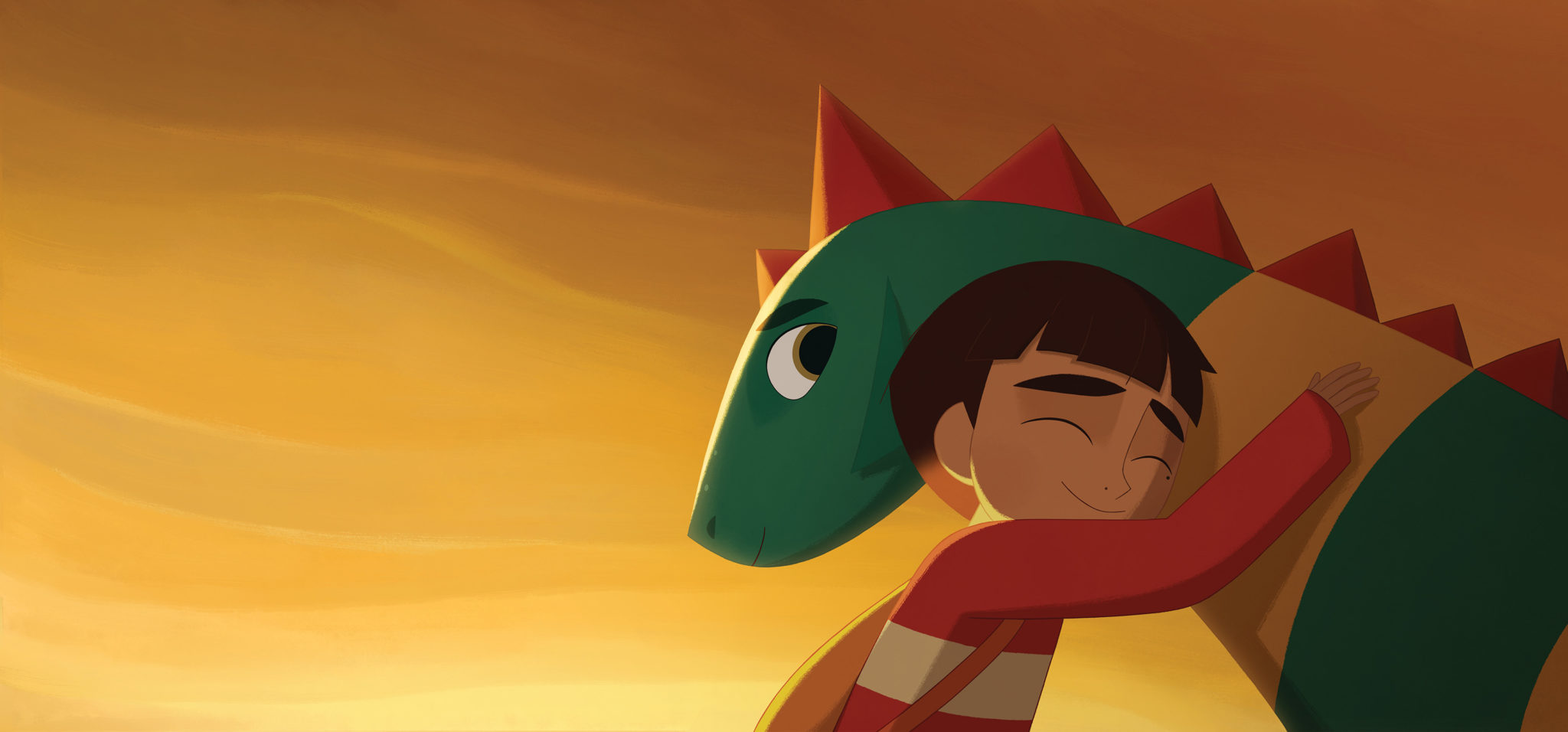 Cr: Netflix © 2022
Cr: Netflix © 2022Cartoon Saloon’s first four feature length works all received nominations for Best Animated Feature and one for Best Animated Short Film (Late Afternoon). The company also developed the cartoon series Skunk Fu!, Puffin Rock, Dorg Van Dango and Vikingskool.
“The awards are fantastic, and we wouldn’t be where we are today without that first nomination that came for The Secret of Kells,” Twomey concedes. “It solidified and steadied our company in ways and threw a spotlight on it. If we hadn’t had that at that particular time, I don’t know if we’d still be around today, honestly. Suddenly you’re wearing high heels instead of sneakers, getting to walk the red carpet as a glamorous version of yourself or a huge star says the name of your company on some big stage. Those are surreal times, but if those are the ones that are motivating you, you’re not going to stay in the business for very long!” she grins. “At our London premiere, I sat behind a four-year-old and her mom and dad. Any time the film got a little bit intense, the four-year-old’s mom would lean in to see how she was getting on and dealing with it, in ways I recognised as a parent myself.
“After about 20 minutes, the little girl was standing up, and when her mom leaned in, she pushed the side of her mom’s face out of the way!” Twomey laughs, beaming. “For me, those are the moments I live for. The ones where I think, ‘There’s something in what she’s seeing that’s really connecting with her’. When things get tough, she might remember part of the film that could help. That’s what animation and creating inclusive stories is all about.”
My Father’s Dragon is currently showing in Irish cinemas and available to stream on Netflix from today (November 11th).









